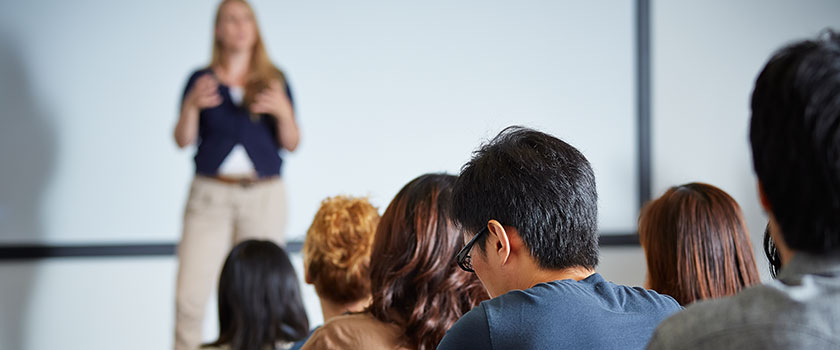University of Reading Cookie Policy
We use cookies on reading.ac.uk to improve your experience. Find out more about our privacy policy. By continuing to use our site you accept these terms, and are happy for us to use cookies to improve your browsing experience.

Inflammatory Licensing Increases Anti-inflammatory and Immunomodulatory Potential of Stem Cell-Derived Extracellular Vesicles
- Title:
- Inflammatory Licensing Increases Anti-inflammatory and Immunomodulatory Potential of Stem Cell-Derived Extracellular Vesicles
- When:
- Wed, 16. November 2016, 10:00 h - 11:00 h
- Where:
- N3.24, University of Reading Malaysia - EduCity@Iskandar
- Category:
- Public Seminar
- Guest Speaker:
- Dr Darius Widera (School of Pharmacy, University of Reading, UK)
- Event Custom Field 2:
- Dr Wee Kiat Ong (School of Pharmacy, University of Reading Malaysia)
- Subject Area:
- Pharm-Health
Purpose of workshop
Restoring the tissue integrity after acute injuries and compensation for the progressive loss of cells during degenerative disorders using current pharmacological treatment strategies is limited and remains challenging. multipotent stem cells can be easily isolated from a variety of adult human tissues and organs including bone marrow and adipose tissue. Especially mesenchymal stromal cells (MSCs) possess immunomodulatory capabilities affecting the majority of immune cells. As of November 2015, more than 540clinical trials utilising MSCs have been registered in the database clinicaltrials.org.
Notably, the therapeutic benefit of MSC-administration revealed in different proof of concept and clinical studies is frequently connected to paracrine/endocrine effects rather than to effects driven by the engraftment of MSCs into affected tissues and differentiation towards lost cell types. Related to their proposed paracrine mode of action, several pre-clinical reports and a clinical treatment attempt of a Graft-versus host disease (GvHD) patient provided evidence that MSCs exert their therapeutic functions via extracellular vesicles (EVs), such as exosomes and microvesicles.
Possible mechanisms by which MSCs contribute to regeneration include reduction of inflammation along with immunomodulation. Notably, exposure of MSCs to pro-inflammatory signals including TLR3, TLR4 and TNFR ligands has been reported to improve their anti-inflammatory and regenerative potential. We hypothesised that priming of adipose-tissue-derived MSCs (AdMSCs) could increase the anti-inflammatory potential of EVs. AdMSCs were exposed to LPS, Poly(I:C) and tumour necrosis factor alpha followed by assessment of the anti-inflammatory potential in a reporter gene-based, standardised potency assay. Here, we show that licensing of MSCs significantly elevates the anti-inflammatory potential of the released EVs.
Despite its high promise, current stem cell therapies are still experimental, expensive and harbour several risks including immunological issues, risk of tumour formation or transmission of pathogens in an allogenic setup. Thus, cell-free approaches including EV-based therapies, potentially involving inflammatory priming, could be considered as an alternative, more cost effective and safer therapeutic option for numerous degenerative disorders and associated symptoms and complications.
 |
Biography He graduated in Biochemistry (Witten/Herdecke University, Germany) and received his PhD in Neurobiochemistry from the Witten/Herdecke University in Germany in 2007. From 2013 to 2015 he served as a Principal Investigator and Adjunct Professor at the Department of Cell Biology, University of Bielefeld (Germany). In February 2015 he was appointed Assistant Professor/ Lecturer in Stem Cell Biology and Regenerative Medicine at the University of Reading (United Kingdom), where his lab is currently based. Since May 2015 he also serves as a Visiting Professor at the Stavropol State Medical University (Russian Federation). He has published over 40 PubMed-listed publications (1398 citation, h-factor of 18) in addition to several book chapters and has presented his research outcomes as invited talks at numerous international conferences in the UK, Germany, USA, Russia, Malaysia, Singapore, Brazil, and China. |
- Admission is free.
- Light refreshment will be served at 9:30 am.
- UoRM staff RSVP by responding to the internal event invitation.
- All are welcome, RSVP by 11 November 2016.
Toll free:
+1800 18 6867
Tel:
+60 (7) 268 6205
WhatsApp/Mobile:
+60 (16) 7725 400
(click the WhatsApp number to contact us immediately)
University of Reading Malaysia
Persiaran Graduan, Kota Ilmu, EduCity, 79200 Iskandar Puteri, Johor, Malaysia.
Toll free:
+1800 18 6867
Fax:
+60 (7) 268-6202







